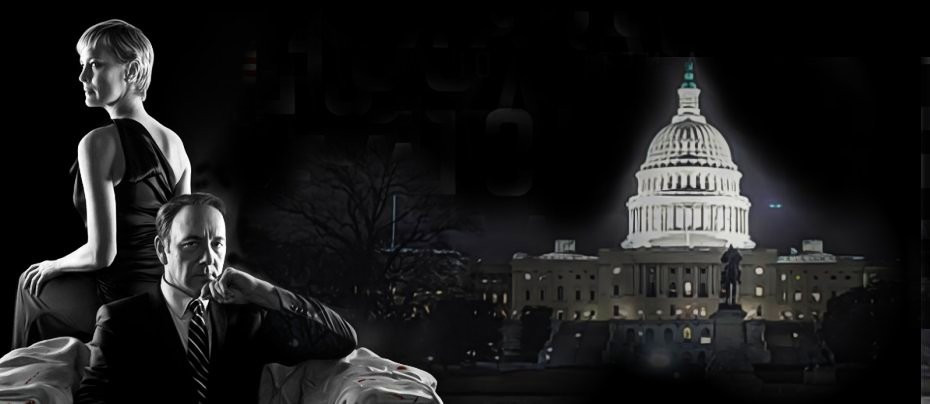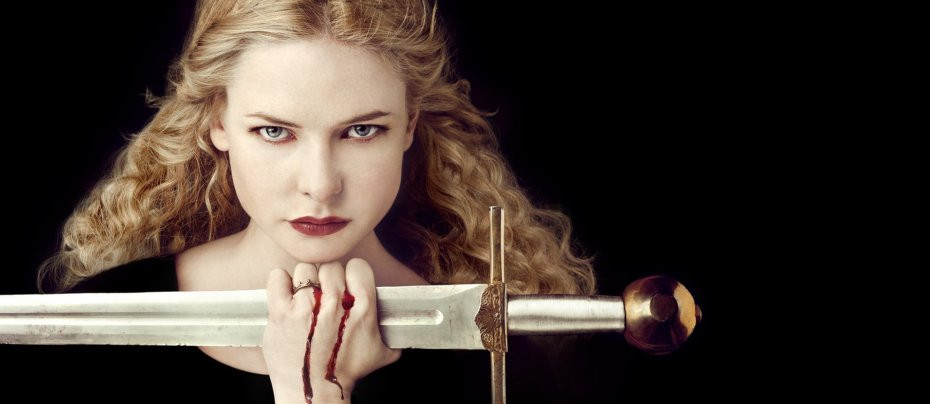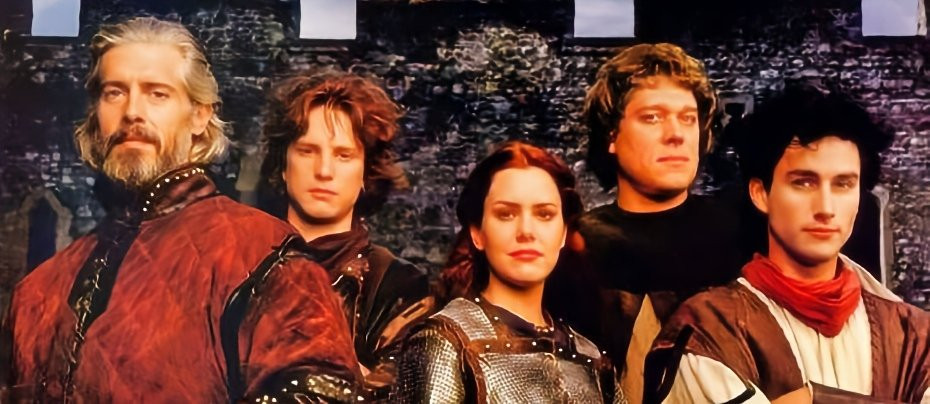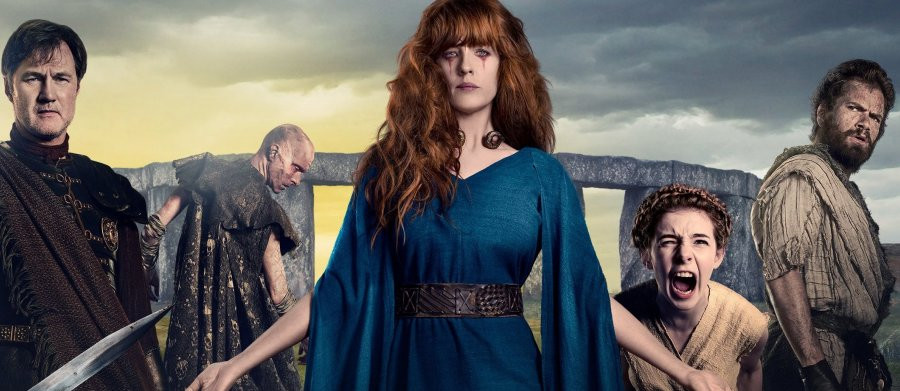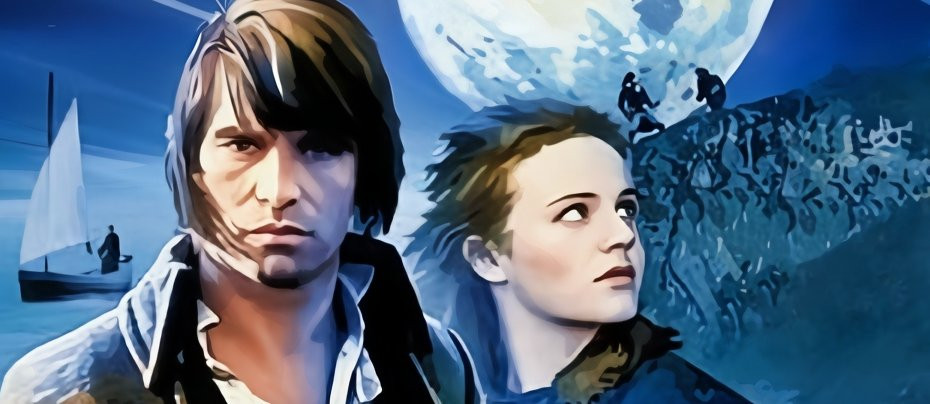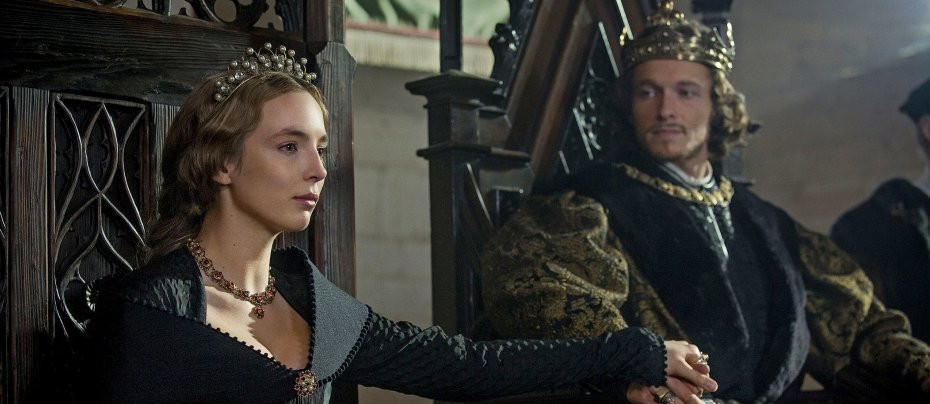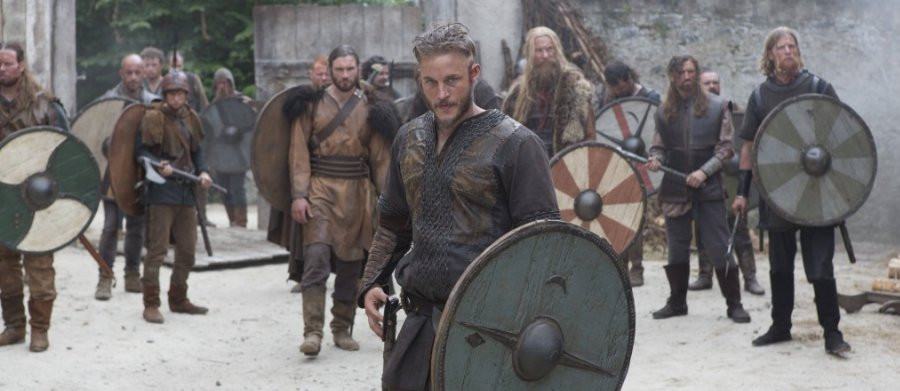
Vikings
2013 - United StatesLike its fictionalised version of the career of its initial protagonist, Ragnar Lothbrok, Vikings went from a middling start to great glory, doing things that have never been done before, only to end in frustration. At its best, it was truly magnificent television, even if, by definition, it could not always be at its best. It was a ground-breaking show, pushing the boundaries of what was technically possible, but ultimately fell short of true greatness.
Viewed at a safe distance, the historical Vikings have always had great entertainment value. Revisionist attempts to imply they were mainly peaceful farmers and traders ran into a solid shield wall of facts, not least their own Sagas. Life for a freeborn Viking really was an ongoing rugby trip.
Yet there is another side of the coin. The reason they became raiders was that they were indeed also farmers, but in a harsh land that yielded little, so the raiding was not so much for pleasure as to provide a much-needed supplement to a meagre income. It was also true that they were traders, but they had little to trade except for the booty and captives taken in their raids - hence odd passages in the Sagas when Viking raiders were fighting with the locals one day and trading with them the next: the "trading" was really ransoming captives and selling property they had taken back to its rightful owners in return for more portable forms of wealth.
Hard lives on the geographic and economic margins were made even harder by their own culture. Although Vikings makes the point very strongly that they were sincere in their traditional pagan beliefs, theirs was not a religion that encouraged much in the way of civic responsibility or ethical dealing. The Vikings were selfish and devious because they believed they had to be so in order to survive. Their government, if that word can be applied, managed to combine the worst features of both tyranny and anarchy.
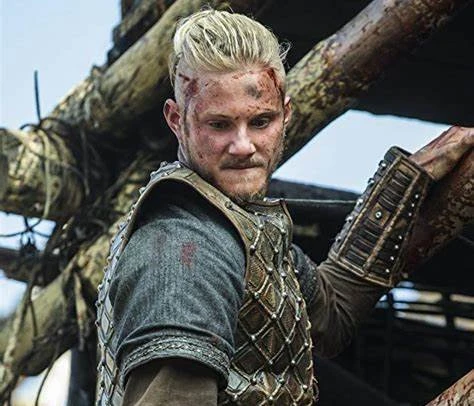
Ragnar Lothbrok - not a family name but a nickname meaning "hairy breeches," possibly from the goatskin leggings he wore - is a real historical figure, even if it is difficult to say to what degree the various stories about him contain any truth. In 'Vikings,' he is the visionary who first suggested that the Vikings should go West to wealthy England on their annual raids rather than East as usual to the Baltic, where they would fight people as tough and as poor as themselves for very little in return. Later he has another idea, that the Vikings should not only raid England but settle there. In reality, the Vikings started raiding England before Ragnar's time and the large-scale settlement came after his death.
The series has him begin as a mid-level Norwegian farmer while historical Ragnar was probably the son of a Swedish King. This is, however, justifiable in dramatic terms because it sets up another level of conflict as Ragnar, like all innovators, encounters envy and obstruction from the representatives of the status quo. The spine of the first season is his difficult relationship with the local Earl and in the second season he must deal with the King. By the third season he is generally acknowledged as a famous man and leads a huge but loose confederation of Vikings at the First Viking Siege of Paris, which the historical Ragnar seems to have done. Thereafter, he begins to fade and the focus is more on his five sons.
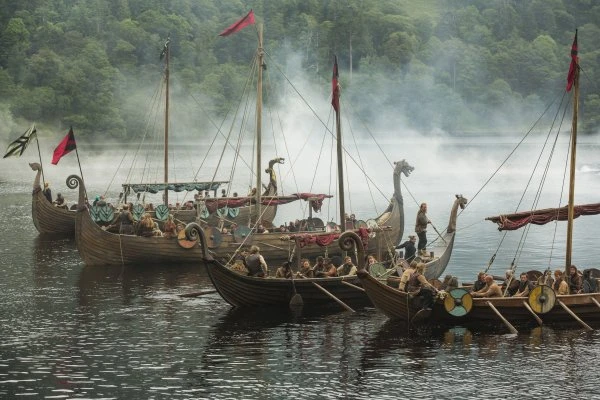
The Ragnarssons are better established in solid history, especially through their involvement in the "Great Heathen Army" that descended on England in 865 AD, traditionally in response to the execution of Ragnar by King Aelle of Northumbria. The series shows this in epic style before rather petering out with a long-drawn-out account of the splits, feuds, and civil wars between the Ragnarssons. Some of these involve great spectacle, but it becomes increasingly difficult to care about them.
To make it more interesting, raiding, exploring, or exile take them on long journeys - to the Mediterranean, Russia, and Iceland, Greenland, and North America, just some of the lands visited by the historical Vikings. The best of these digressions, filmed on location, are indeed visually stimulating, but they are still only digressions and rather emphasise the point they are meant to hide, that the series has run out of plot by this stage.
To be honest, the story really compels only when it is about Ragnar himself, thanks to an extraordinary performance by Travis Fimmel. Previously notable only for a failed attempt at a Tarzan series, and for being blown completely off the screen by a terminally ill Patrick Swayze in The Beast, Fimmel might not have been obvious casting as a Viking warlord, but from the start he establishes himself as a wholly credible character completely at home in his time and place. Ragnar has the personal magnetism of a natural leader despite looking thoroughly untrustworthy. That combination says a lot about the Vikings, who talked loudly of honour but actually valued cunning almost as much as they did courage. While we can never really sympathise with Ragnar, it is hard not to be fascinated by him.
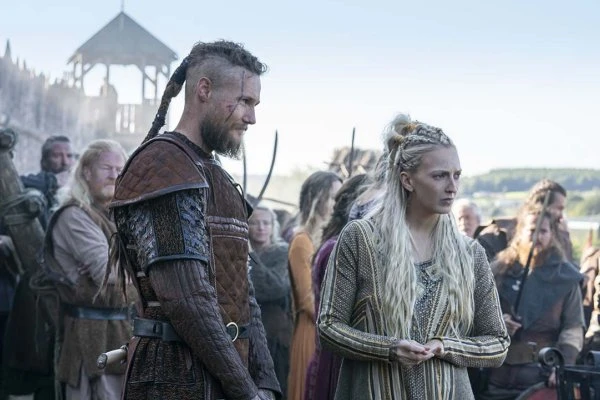
Navigating a role of many contradictory aspects with great skill, Katheryn Winnick makes his wife, Lagertha, fully his equal, even his superior in some respects. The character has become something of a feminist role model. We are told that she is a "famous shield maiden," a wife and mother who happens to be an outstanding warrior. Although she is mentioned as such in Medieval sources, most historians take it with a big pinch of salt. There is indeed a fine literary tradition of warrior women in the old Sagas, most famously Brynhild in the 'Volsunga saga,' and warrior queens, such as Thornbjorg in 'Hrolf's saga Gautrekssonar,' and a queen in Germany described in 'Hrolf's saga Kraka' as "every inch a war king in her ways" who adopted the male name Olof. However, while there is evidence that Norse women pitched in on occasion when the situation demanded, the notion of women fighting on equal terms alongside men is very unlikely: the basis of Viking tactics was the shield wall, which was only as strong as its weakest link and which therefore demanded a minimum standard of physical bulk.
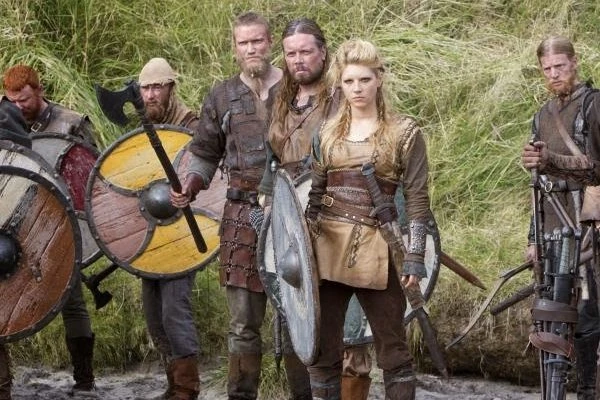
That standard was surpassed easily by Ragnar's brother, Rollo, as played by Clive Standen. The historical Rollo was actually born a couple of generations after Ragnar, and there is no evidence that the two were related. That may be just about excusable in terms of dramatic licence because his involvement gives Standen a good pretext for a wholly realistic portrait of an outstanding Viking warrior, as well as a clever case study in extreme sibling rivalry.

If Standen's Rollo is the classic Viking, a huge, fearless brute, not overly bright, his antithesis is Floki the Shipbuilder, the closest thing there is to a Viking intellectual. His name references Loki, the trickster of Asgard, and Floki seems to take pleasure in appearing to be unpredictable. Yet his eccentricity masks a great sensitivity and uncertainty, not least about himself. He shares Ragnar's cunning and, to a certain extent, his personal magnetism, but defers to him out of a strange lack of self-confidence. He is, nevertheless, a fiercely aggressive fighter and the most militantly anti-Christian of all the Vikings. Played by Gustaf Skarsgard - one of the Stellanssons, as the Vikings might put it - he is a natural scene stealer.

The actors playing the Ragnarssons seem to have made some effort to imitate Fimmel's mannerisms as their father. Alexander Ludwig as Bjorn Ironside and Jordan Patrick Smith as Ubbe are particularly successful in this regard. Both also retain a slight hint of weakness, common in the sons of notable self-made men who are overly conscious that they are not quite living up to what is expected of them.
There is no such weakness in the most memorable of the sons, Ivar the Boneless, played by Alex Hogh Andersen. Crippled from birth, there was no room for someone like him in the pitiless Viking economy. All too aware of this, every day is literally a struggle to survive. Ivar becomes the living proof that what does not kill makes one stronger. With no room for pride, and no one to help him, he crawls around in the dirt at high speed and forces himself to learn to do almost everything a Viking is expected to do, including fight. His irrepressible will to survive becomes an equally irrepressible will to lead - not least because he could not survive as a follower. This extraordinary will and his even more extraordinary intelligence make him the son who most resembles his father, except that he has even less room for sentiment. Although we sometimes see his vulnerable side, there is something positively evil, even otherworldly, about him, especially when he slithers around like a serpent - and, like a serpent, he mesmerises his victims.

Marco Ilso invests the loser son Hvitserk with a poignancy some of his actions do not deserve. There is a clever hint at the very end that Hvitserk the Loser might - in the 'Vikings' version of history, not the real one - end up the big winner.
There are a number of familiar faces in the supporting cast. Gabriel Byrne is the envious Earl in the first season. Jessalyn Gilsig from Glee is every Viking's fantasy as his wife, Siggy - she deserves a better written part, something that could also be said of several other female members of the cast. Donald Logue, from Sons of Anarchy and The Tao of Steve, is a blatantly unscrupulous King in the second season. George Blagden, later King Louis in Versailles, is an indecisive monk Ragnar likes for no obvious reason. Linus Roache does better than the part deserves in a strangely conceived role as a King of Wessex who is described as being like Ragnar but who resembles no one so much as Sergeant Wilson from Dad's Army. By contrast, Lothaire Bluteau, from Jesus of Montreal' and Black Robe, is a King of West Francia who turns out to be far from the idiot he seems at first.
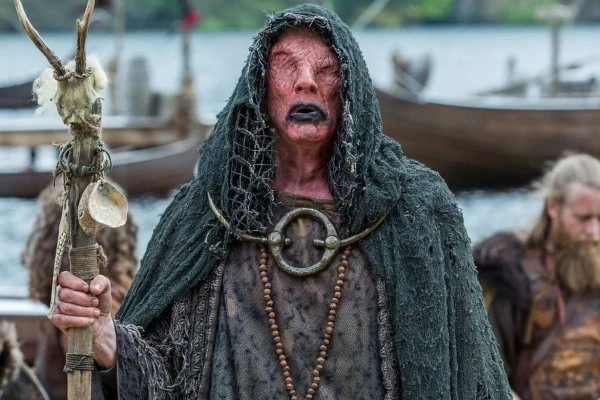
Veteran Irish actor John Kavanagh made such an impression as a pagan "seer" that they kept bringing him back after the character was killed off. Ray Stevenson is well cast as the legendary traveller Othere, but the script is never clear what his role is meant to be. Jonathan Rhys Meyers turns up as warrior-Bishop, a potentially interesting combination by no means without precedent, but as written the character does no more than change sides very easily and fall in love with Lagertha - quite understandably - so there is no real exploration of his contradictions. Ivan Kaye is, once again, a fine villain in the grand manner as Ragnar's nemesis, King Aelle - except Aelle is not really a villain because all he is trying to do is protect his Kingdom. Steven Berkoff enjoys himself as a strangely written philosophical King. It is particularly good to see Vladimir Kulich, who was so effective as Buliwyf in The Thirteenth Warrior, back as a Viking - and a pity he does not stay longer, but his presence is a nice nod to the cinematic heritage of the Vikings.
Among the younger cast, Moe Dunford makes a strong impact as one of the few sympathetic characters, a well-meaning Prince out of his depth, caught between his father and the Vikings. Sisters Maude and Georgia Hirst do well as unrelated Viking women - they just happen to be daughters of Executive Producer Michael Hirst, but if that had any bearing on their casting, the favouritism was justified by their work.
The production was based on Ireland, and that is reflected in the strong Irish contingent in the cast and the use of Irish locations, which were especially effective when standing in for England. It should be noted that the Vikings themselves were very active in Ireland and played a big part in her history, even if this is, curiously, not mentioned in the series.

Vikings is, first and foremost, a triumph of production. The sets, costumes, and props deliver a complete feeling of authenticity, but it is their combination with the latest CGI that really astonishes.
The CGI is literally wonderful. It does for television what Lord of the Rings did for cinema. Fleets and armies and battles and towns look real. What would have taken more extras than any television production could ever afford can now be done on a computer. Of course, those who are familiar with computer games are already familiar with the technology and know the signs of its use, but, even accounting for that, it is hard not to be impressed. The boundaries between television and cinema continue to fray.
This is combined neatly with some great camerawork. There are many fine photographic sequences, including a memorable battle on a beach, longships gliding up a wooded "English" river, and Ragnar - later Bjorn in the same position - looking over his domain from on high. There is some good-looking travelogue footage from Norway, Canada, and Morocco.
Great effort has obviously been made to get many of the details of the period right, especially the culture and the economy of the Vikings themselves. Of course, all writers have the right to fill in the gaps between known facts, and most claim a limited right to re-order facts for dramatic purposes. For example, it is quite permissible for Ragnar to resort to a ruse that is actually attributed to Harald Hardrada two centuries later because it illustrates the sort of thing the Vikings really did do.
However, there is a definite line between dramatic licence and being positively anti-factual, and Vikings crosses that line - a lot. The chronology is all over the place. In addition to leading the First Viking Siege of Paris, the series has Ragnar present at the Second, which was in fact forty years later. By this time, not only was Ragnar long dead but the political and military situation had changed completely.
Even more anti-historical is the notion that large armies from France and the Ukraine could easily be transported North to take over Scandinavia. If they could have done that, the Age of the Vikings would not have lasted very long. The Vikings were not numerous, but they terrorised a vast area precisely because they could raid with impunity from bases inaccessible, and generally unknown, to their victims.
The series gets some of the social history wrong too. The Vikings were neither as feminist or as egalitarian as the series portrays them. They had a highly structured class system which was very important to them in practice. The Sagas are very clear that even in ultra-egalitarian Iceland it mattered a great deal who your father was, and women were very much second-class citizens, indeed not really citizens at all.
Christianity is not portrayed favourably, which is dramatically defensible because the series views things mainly from the Vikings' perspective, which was, of course, very anti-Christian at this time. However, the Vikings themselves soon began to embrace Christianity, freely and sincerely, in large numbers. The picture of the Church painted in Viking' gives no hint of how it achieved this. The fact is that it impressed them. That it seems so unimpressive in Vikings therefore misses an important point and misrepresents history.
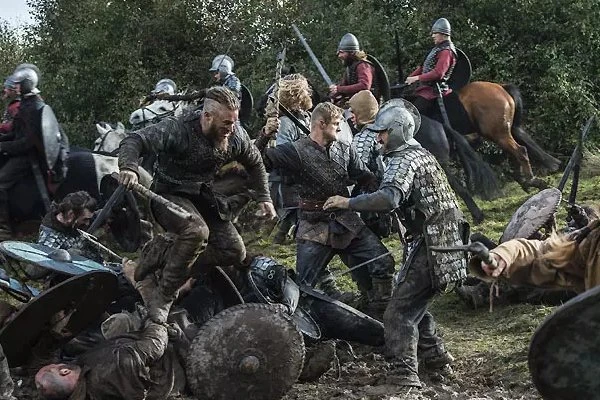
Some might argue that none of this matters because Vikings is just "entertainment." However, part of the entertainment value of the genre of historical drama is derived from the knowledge that we are watching is "real" - as opposed to the fantasy genre. In the particular case of 'Vikings,' it was commissioned by the History Channel as its first original drama. Is it naive to consider that we have the right to expect that what appears on the History Channel is, er, history? Perhaps. It still ought to be.
The irony is that the result of all the liberties taken in the name of dramatic licence was not as dramatic as what was offered by history - or at least by the Sagas, which are not quite the same thing. Even when there was a lot of action and spectacle, there was a lot of flab in 89 episodes, especially in the last three seasons, which ran to 20 episodes apiece. It was too much. Indeed, those last three seasons were each shown in two parts. A great deal of money was obviously invested in the overheads of the production, so it was an economic necessity to get as much out of it as possible, even at the expense of the story.
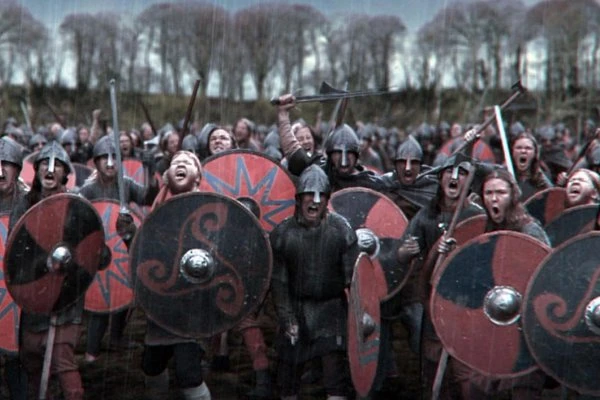
Promising subplots and character arcs went nowhere on a regular basis. It is sometimes a sound comment on the unpredictability of life and the folly of human plans to kill off a character arbitrarily - or apparently so - but to do so frequently is bad storytelling. It became a standard pattern, not at all unpredictable, that characters hitherto defined by a strong Will to Power lost the will to live. People who were supposed to be clever, like Ragnar and King Sergeant Wilson, became especially prone to spout all sorts of contradictory rubbish and act irrationally. For this to happen once or twice might have made a valid point about the vanity of ambition, but, even allowing for cultural differences, it happened far too often for it to retain any real impact. Character after character was overcome by a sort of 'ennui' - and so was the most dedicated viewer by the end.
For it must not be forgotten that this was a show that built up a truly dedicated fan base - and one can see why. It was still an outstanding piece of work, and these expressions of frustration should be put in their proper context: its failure to live up to its possibilities is frustrating only because it was so good, sometimes even great.
We were taken to an unfamiliar world which was so well constructed, so credible that we felt it was real, and perhaps began to feel at home there, even if we were still glad we could leave it at will. If that is not the definition of what television drama at its best is supposed to achieve, what is?
Seen this show? How do you rate it?
Seen this show? How do you rate it?
Published on January 14th, 2021. Written by John Winterson Richards for Television Heaven.


